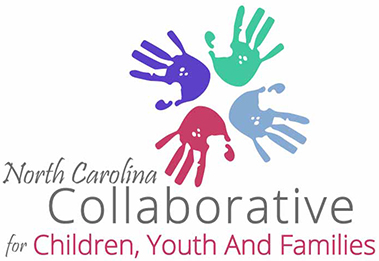Supporting Children of Incarcerated Parents during COVID-19 Pandemic
By Melissa W. Radcliff
Program Director, Our Children’s Place
With COVID-19 developments continuing to come at us with dizzying frequency, families and professionals revise and revamp their efforts to support the educational, emotional, nutritional, and safety needs of children.
And yet we know that tucked away is a group of children who were unrecognized before the pandemic and continue to be so now: children whose parents are in jail or prison. These children were not convicted of a crime but are experiencing the sentence that comes with having an incarcerated parent.
Children in these situations miss the opportunity to share and celebrate milestones with their parents – birthdays and holidays, the winning shot in basketball, a great school play performance, graduations, the end of the school year, Mother’s Day, Father’s Day, and so many more. The loss of this sharing and celebrating is compounded by the pandemic and the changes it has brought to all of our lives.
These are children who hear the words “social distancing, PPE, and stay-at-home orders” throughout the day and wonder if their parents are safe, are they sick, will they get sick? If they are sick, are they being cared for?
These are children whose routines have been turned upside down and would like nothing better than to see their parents. With prison and jail visits suspended in early spring, this cannot happen. Now heading into the fourth month of suspended visits, the newest questions center around whether video visits are an option and whether in-person visits will start again. If so, when and what will they look like? Out of sight is not out of mind for children with incarcerated parents.
These are children who are assailed by the news of COVID-19 in our prisons and jails; facilities being shut down and people moved; concerns about lack of testing and protective equipment; calls for early release (and questions raised about the country’s rate of incarceration); and protests focused on racial injustice and criminal justice reform throughout the country. While they may not understand all of this completely, they do sense the additional stress with which their families are dealing. As one mother shared in a recent webinar, her children have extra time on their hands to think, wonder, and worry. Does a missed call mean a mother or father is sick or does it mean a parent didn’t have access to a phone?
Our Children’s Place (OCP) encourages communities to consider what they can do to support children of incarcerated parents.
Professionals can check in with children experiencing parental incarceration, ask how they are doing, and provide materials that OCP has made available on its website, www.ourchildrensplace.com, including books lists and Sesame Street toolkits. Resources provided by OCP can also be utilized by community members helping with food, book, and other types of distribution across the state who find they are encountering children of incarcerated parents in their volunteer efforts. Community organizations can help by sharing OCP resource materials on their websites and social media platforms.
Let’s be creative, bold, and caring as we think about ways to recognize children of incarcerated and returning parents, support them (rather than shame and stigmatize), and encourage them to share their stories.
Our Children’s Place of Coastal Horizons Center is a statewide program committed to the children of incarcerated and returning parents. We strive to be the leading North Carolina advocate and educational resource focused on these children and the need for a statewide response to ensure their well-being. For more information, please contact Our Children’s Place at mradcliff@coastalhorizons.org or (919) 904-4286.
